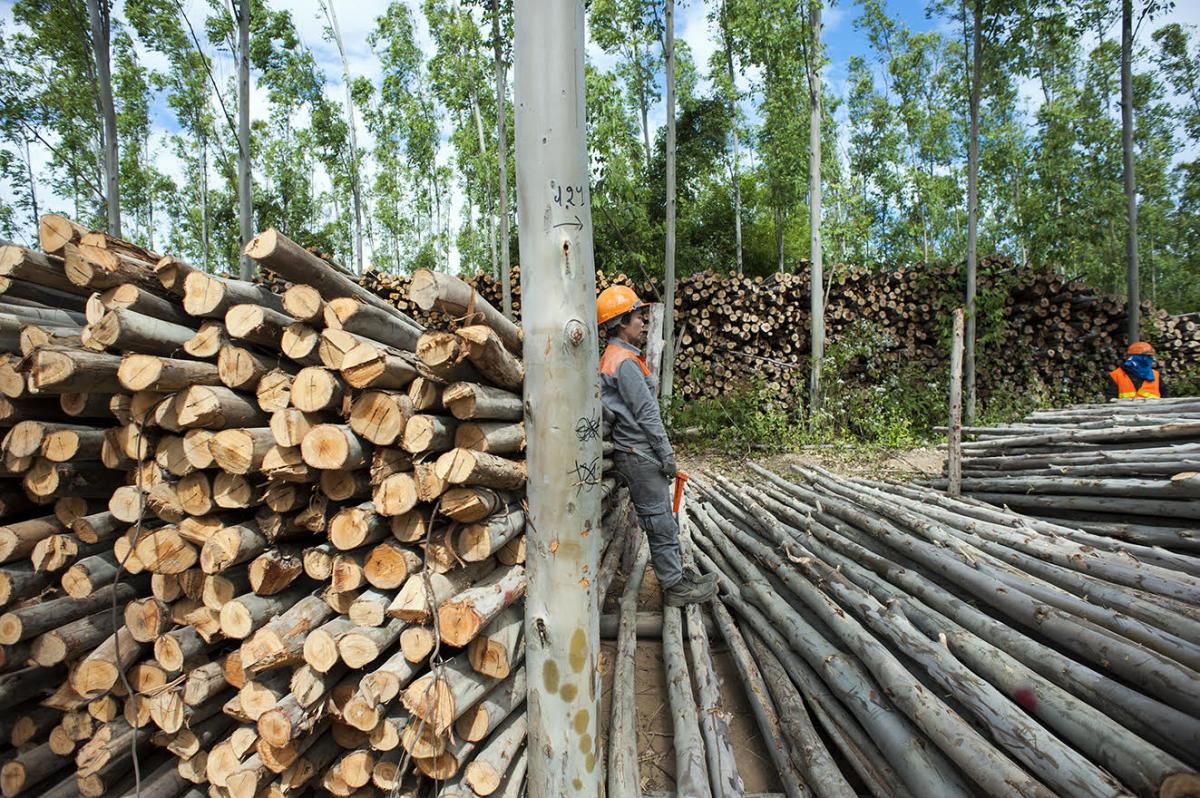Curating land information is part of our daily work in the Land Portal. It includes selecting, categorizing, and enriching information with analysis and/or additional data, graphic visualizations, etc. In times with so much information available to choose from, people are increasingly seeking sources that offer selections of high-quality knowledge and provide analysis that make sense of it. Understanding how partners in the land community are meeting this demand is a great source for us to improve our work of curating, and providing meaning to land data.
A book recently published by the Mekong Land Research Forum and the Mekong Region Land Governance project offers a great example of selecting high-quality information on land issues, categorizing it and extracting key trends and patterns of change in the land space. “Key Themes in Land Governance: Synopses of Research, Policy and Action in the Mekong Region" examined over 800 research articles and provided a conceptual framework based on 14 themes for understanding land issues.
This piece of work is particularly timely for the Land Portal Foundation, as we have started to revamp our Issue pages - portfolios on key land governance themes including a description and links to a selection of related news, blogs, and events. While revamping these pages we need to consider, for example, whether our choice of themes is still relevant and encompassing the most important questions currently raised by land stakeholders.
We have talked to Daniel Hayward, one of the book authors, to tell us more about the methods used in the publication, as well as the very results which offer a rich overview of the land situation in the Mekong region and a basis for comparison with the trends and patterns in other parts of the world. Daniel is also a Land Portal’s research consultant at the Country Insights initiative.
Land Portal: Tell us how Key Themes in Land Governance: Synopses of Research, Policy and Action in the Mekong Region came about?
Daniel Hayward: To understand the origins of this book, I must give some further details on the Mekong Land Research Forum. The Forum was born out of a collaboration between the University of Sydney and Mekong Region Land Governance (MRLG) project, to improve access to quality research on land in the Mekong region, better connect researchers, and offer training programmes for practitioners. Since 2015, the Forum has been housed at RCSD (Regional Centre for Social Science and Sustainable Development) at Chiang Mai University, Thailand. The aim to improve access to research, including academic studies and grey literature such as NGO reports, involved setting up an online resource. I say resource since it is more than a mere repository, not just housing material but also offering a conceptual frame by which to study them. This is done by a process where each article is tagged under one or more 14 key themes. Over the last six years, we have been writing an extended synopsis for each key theme, drawing upon the tagged literature for each case. We recently completed the final synopsis and found it such a significant body of work that we decided to publish them all as a single volume.
Land Portal: Why is the book important?
Daniel Hayward: Within the topic of land (or its recent popular derivations such as ‘land grabbing’, ‘land governance’, or ‘land relations’) the Mekong region has a particular experience with the transformation of its land relations. By the Mekong region I mean mainland Southeast Asia including Cambodia, Laos, Myanmar, Thailand, and Vietnam. These countries (apart from Thailand) have undergone periods of colonialization and then post-independent socialism, before opening up their economies from the 1990s onwards. The desire to let land contribute to economic growth (most literally seen through the Lao policy of ‘turning land into capital’) has led to tensions between the claims of the rural poor, private sector access to land, and the need to conserve ecological functions. Of course, this is a simplistic overview, and the book goes into much more detail, drawing together an extensive collection of around 850 quality research articles. Indeed, one of the most important functions of the book is to make this incredible body of literature accessible on a wider scale, using the key themes. This detail helps give more attention both for those with a specialist interest in the region, and also for those looking to see how the information connects to debates in other areas of the world.
The book [draws] together an extensive collection of around 850 quality research articles. Indeed, one of the most important functions of the book is to make this incredible body of literature accessible on a wider scale.
Land Portal: What is an extended synopsis?
Daniel Hayward: A synopsis is an analytical piece that draws together multiple sources of information to drive the narrative. The advantage here is two-fold. There is a chance to learn about the individual pieces of research under reference. However, the synopsis also connects the dots between this work, to see how they contribute to broader conceptual and geographical discussions. In our case, we have framed each synopsis under the following structure:
- Each synopsis starts with a single paragraph overview summing up the meaning and significance of the theme.
- Key trends and dynamics are outlined relating to the theme and its development over time across the region.
- There are different key actors and interests in land governance, and the role of each stakeholder group is considered relating to the theme.
- Key contestation and debates name and highlight the diversity of views that may be held around the theme.
- There is a discussion of key differences and commonalities among Mekong countries allowing for country-based studies to be compared at a regional level.
- At the same time, certain aspects of a theme may transcend national borders, and it is important to note these links and interactions across borders and across scale.
- Finally, a listing of key reforms and strategic openings relevant to the theme are provided.

A local employee of Stora Enso Company leaning against a pile of eucalyptus trees inside the commercial plantation set up in the village of Ban Lapeung, Ta-oy district, Salavan province, Lao PDR. Stora Enso claim that they incorporate the principles of responsible agricultural investment into their practices (photo credit: Anthony Gueguen/CCL in Guttal and Chrek 2016)
Land Portal: What are the key themes and how were they developed?
Daniel Hayward: The 14 key themes are:
- Policy and Law
- Land Rights Recognition and Formalisation
- Foreign Direct Investment and Land Access
- Dispossession and Land Grabbing
- Planning, Land Conversion and Food Security
- Civil Society and Donor Engagement
- Land Distribution
- Dispute Resolution and Access to Justice
- Marginalised Groups
- Environment and Conservation
- Migration and Labour
- Agricultural Modernisation
- Gender and Land
- Urban Land Governance
Philip Hirsch, Natalia Scurrah, Tenley Gilmore, and Satomi Higashi selected 12 key themes during initial work at the University of Sydney in collaboration with MRLG. There was no preconceived notion as to what these themes should comprise. Instead, the themes emerged in response to a review of the substantial number of reports and articles, themselves reflecting the ongoing governance agendas and debates from around the region. I joined the project in 2015 as project coordinator of the Mekong Land Research Forum when it was formally launched at RCSD. At this point four extended synopses were already completed. A review soon after highlighted some thematic omissions, which resulted in the addition of the two key themes ‘gender and land’ and ‘urban land governance’. Since then, we have stuck with this grouping to prioritise the writing of extended synopses. In 2020 we updated the initial four synopses written in 2015, in order to incorporate the published literature from the intervening years.
I do not think that one must be solely interested in the geographical area to take something from this. We are interested in how those focused on South Asia, South America, sub-Saharan Africa, or other areas relate to the conceptual frame. We are really hoping to get some feedback from readers from different parts of the world.
Land Portal: How should the reader use the book?
Daniel Hayward: This is an interesting question. I would say that there are various ways in which to approach this book. Of course, one could read it straight through from cover to cover. However, it is more likely that the reader has certain topics of interest and may wish to focus on the corresponding chapters. They may also wish to seek how a certain theme relates to a specific country. If the reader is within a research process, the book offers a useful conceptual frame for their work, but also a gateway to important research. The bulk of the writing is structured around research articles found in our online resource, and each bibliographic citation at the end of the book carries a link to the corresponding article. Our aim in the resource was not to provide an exhaustive collection of research material but to source and peer review quality research before tagging and uploading it. The book is a great way for the researcher to learn about and then access important material related to their own topic.
Land Portal: What if your interest is not in the Mekong region?
Daniel Hayward: I believe that for those who have a general interest in land, the book provides a unique conceptual perspective, refined through discussions in the Mekong region. I do not think that one must be solely interested in the geographical area to take something from this. We are interested in how those focused on South Asia, South America, sub-Saharan Africa, or other areas relate to the conceptual frame. Do the key themes and their conceptual arrangement fit to other regions? Does the corresponding research for each topic chime loudly? Or are there some significant differences in how people think of and work with land? We are really hoping to get some feedback from readers from different parts of the world.
Land Portal: What other research avenues does this book point to?
Daniel Haward: I think for the moment it is time to let this book act as a certain marker in time and see how it settles. However, things are fast moving, and new research is being published all the time which reflects changes in land relations around the Mekong region. What is the future in Myanmar from its political turmoil? Is COVID now the new normal and how will land regimes react to the economic tribulations resulting from the pandemic? What about climate change, to which the Mekong region has some of the greatest global vulnerabilities? We hope that the book is an important reference point for existing research that can help us understand better emerging issues in the region.
The book can be found free-of-charge both at Land Portal and at MRLG.
To receive more information on land and research in the Mekong region, please join Mekong Land Research Forum research network, by filling in this form.



